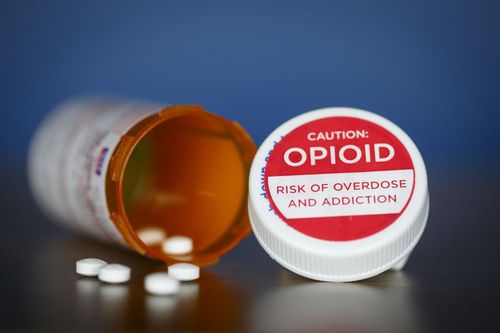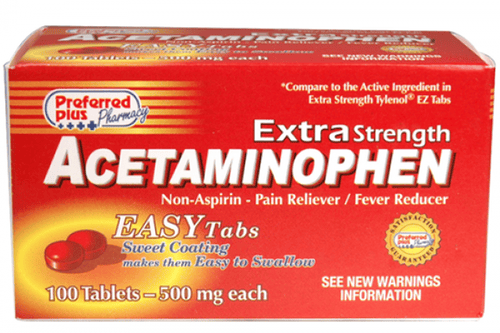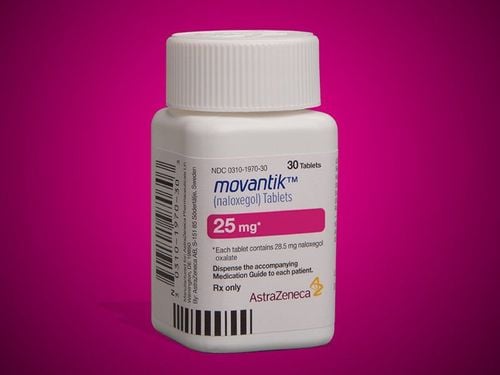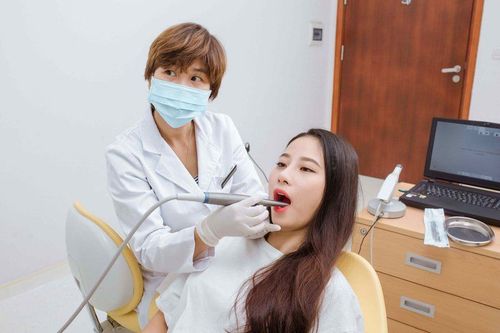This is an automatically translated article.
Toothache is considered one of the top discomforts for many people, even having a serious impact on quality of life. Using a pain reliever is the fastest way to temporarily relieve pain before you go to the dentist for a checkup.
1. Causes of toothache
Almost everyone in his life has at least once experienced a toothache. This is a common medical condition and has certain effects on patients.
In general, toothache often comes from four main causes:
Wisdom teeth: When wisdom teeth erupt or grow crooked, it will cause long-lasting dull pain for the patient. The situation of wisdom teeth eruption will be repeated, making many people feel tired and affect daily activities. Tooth abscess: This is a complication from oral diseases such as bacteria attacking the pulp. Tooth abscess will cause pain, pus around the tooth root, even more painful when chewing food. Inflammation of the pulp: The pulp is the place where the nerves are stored, so if the pulp is infected, it will cause toothache. Tooth decay: This is the most frequent cause of toothache and can occur at any age. Tooth decay usually causes pain from mild to severe depending on the condition of the decay as well as discomfort affecting daily life. In addition, some causes such as braces, dentures, ... can also cause toothache. Patients with toothache should go to the dentist to check the condition and find the cause for definitive treatment because taking toothache medication is only a temporary method, but cannot completely solve this situation.

Có nhiều nguyên nhân dẫn đến đau răng như mọc răng khôn, sâu răng, viêm tủy răng, áp xe răng,...
2. What kind of toothache relievers are there?
In order for toothache to disappear completely, it is essential to treat the cause completely. However, many people often look to buy pain relievers to use and only when the medicine is no longer effective, they will go to the hospital for a checkup.
In general, toothache pain relievers are divided into two groups including prescription and over-the-counter dental pain relievers.
Over-the-counter toothache relievers include:
Benzocaine: This is a local anesthetic, which has a soothing, pain-relieving and numbing effect directly in the area of toothache. Non-steroidal anti-inflammatory drugs (NSAIDs): This is a pain reliever suitable for people with tooth decay, gum disease or sinus pressure. In addition to pain relief, the drug also works to reduce inflammation at the site of pain. Acetaminophen : Only works to relieve throbbing or persistent pain caused by tooth decay, not reducing inflammation like non-steroidal anti-inflammatory drugs. Prescription toothache medications mainly include opioid pain relievers such as morphine, oxycodone, codeine, hydrocodone and non-opioid pain relievers such as ibuprofen, diclofenac. However, with these drugs, patients can only use them when prescribed by a doctor, do not buy drugs on their own to avoid causing serious consequences.
3. Instructions on how to use pain relievers properly
Toothache pain relievers are most effective when prescribed by a specialist. In particular, toothache is often related to certain nerves. If the drug is used widely without following the instructions, it can cause even more serious consequences.
For over-the-counter pain relievers, patients can buy and use them themselves. However, it is necessary to carefully read the instructions for use available in the box or follow the instructions of the pharmacist. In addition, when using over-the-counter pain relievers, patients should note the following issues:
Acetaminophen: Use the correct dose, stop drinking alcohol while taking the drug, and be careful with young children. Non-steroidal anti-inflammatory drugs (NSAIDs): Overdosage can cause stomach bleeding, especially in patients over 60 years of age or taking medications such as anticoagulants, steroids,... certain effects on the kidneys should be considered. In addition, this medicine should not be used for more than 10 days without a doctor's prescription. Benzocaine: Not for use in children under 2 years of age. For prescription toothache medications, patients should only use them when prescribed by a doctor, not arbitrarily learn and buy drugs for use. Opioid can cause drowsiness, so after using it, you should not operate machinery, drive,...
In addition, during the use of the drug, if you feel any abnormalities, the patient will You should go to a hospital or medical facility right away for a checkup because sometimes these often warn you of a side effect or an overdose.
In short, pain relievers only give you temporary pain relief and do not work to completely treat the pain. It's best to see your dentist before your condition gets worse. Take care of your teeth by brushing your teeth twice a day after meals and checking your oral health every 6 months. This will help you detect dental problems early and treat them before pain occurs.
Please follow the website: Vinmec.com regularly to update many other useful information.
Please dial HOTLINE for more information or register for an appointment HERE. Download MyVinmec app to make appointments faster and to manage your bookings easily.
Reference sources: suckhoedoisong.vn, hellobacsi.com, tuoitre.vn













